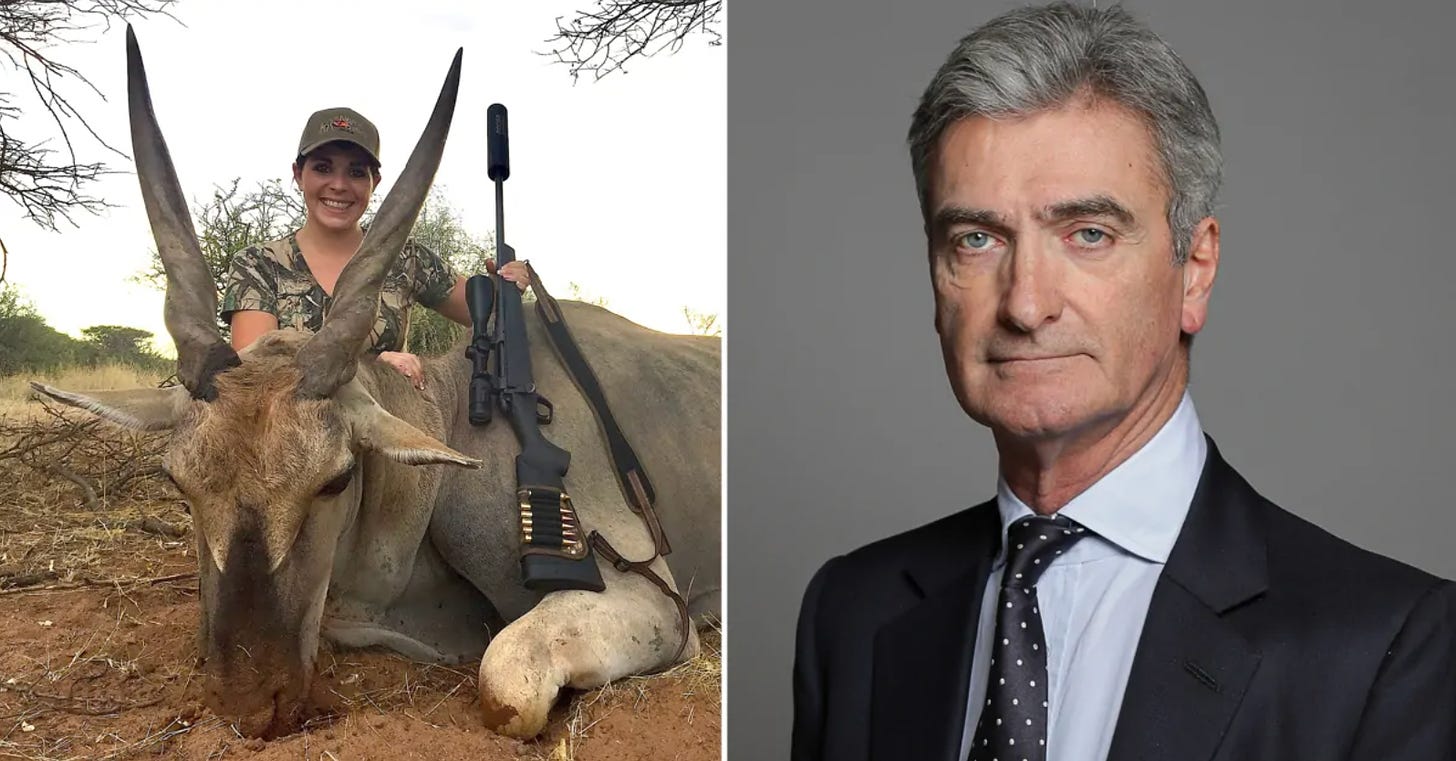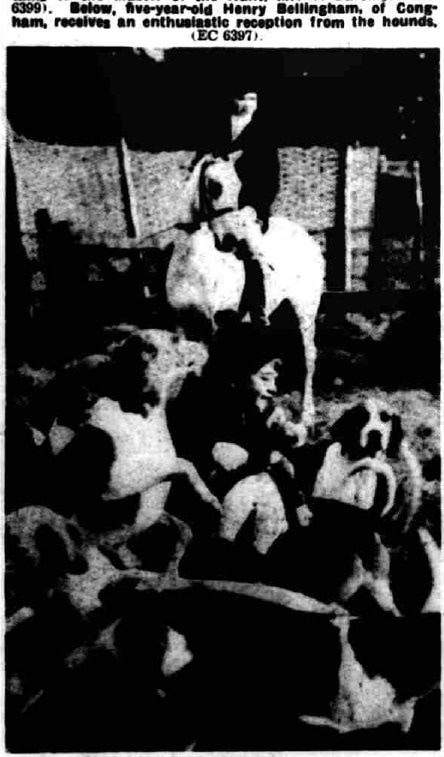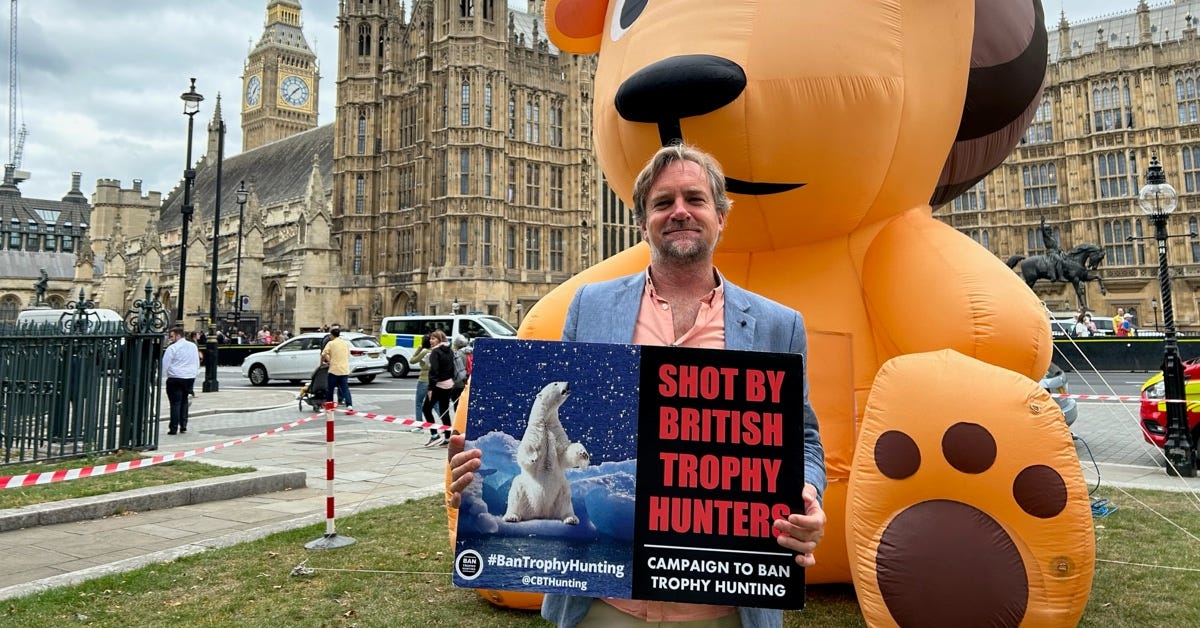Notorious fox hunters just helped sabotage the trophy hunting bill's chances
Peers in the House of Lords recently discussed the proposed ban on trophy hunting imports. The session is typically used to iron out details in proposed legislation. But this time, a small group of peers used the time to undermine its progress - and they included some well-known names from the world of fox hunting.
On 12 September, the House of Lords held its committee stage reading of the Hunting Trophies (Importation Prohibition) Bill. The legislation had already passed unopposed through the House of Commons back in March, giving campaigners hope that it'd make it into law this year. Some members had different ideas, though.
Rather than iron out some of the bill's wrinkles, a handful of peers decided to table a torrent of amendments. They also refused to group the amendments despite their similarity, meaning the House had to discuss each individually. As a result, only five of 62 amendments were covered during the three-hour session.
Campaigners for the law described what the peers did as filibustering, or running the clock down on legislation they disagree with. And amongst the House members involved in the filibustering were several names with long histories in the UK's fox hunting industry.
Bridges between two worlds
Benjamin Mancroft, or Lord Mancroft, is by far the most recognisable of these names. He was, of course, head of the Master of Foxhounds Association (MFHA) when the Hunt Saboteurs Association leaked Hunting Office webinars in November 2020. Mancroft himself was featured in the webinars but narrowly avoided culpability.
Mancroft tabled three of the 62 trophy hunting bill amendments.
The next notable name is Henry Bellingham, or Lord Bellingham. He was briefly tipped as Mancroft's replacement as head of the MFHA before the webinar scandal. Although Bellingham saw himself as a "relative outsider" to the hunting industry, he has long had ties to the West Norfolk Foxhounds including publicly defending former huntsman Charles Carter after his sexist comments towards a hunt saboteur in 2017. Norfolk/Suffolk Hunt Saboteurs even reported seeing Bellingham out with the hunt in March 2022.
Bellingham was responsible for tabling three of the 62 amendments.
Henry Bellingham greets the West Norfolk Foxhounds. From the Lynn News and Advertiser, 10 January 1961.
There are also several people with less intimate connections to hunting with hounds. Greville Howard, or Lord Howard of Rising, declared in 2019 on paperwork for the local council, that he was a member of the Countryside Alliance. He tabled six of the amendments. Aeneas McKay, or Lord Reay, was an ardent opponent of the Hunting Act and vigorously defended hunting in 2001, though he said he didn't himself hunt. McKay was responsible for three of the amendments. And Hugo Swire, or Lord Swire, is well known for his criticism of the Hunting Act too. Swire tabled seven of the amendments.
Furthermore, although he didn't table any amendments, Nicholas Soames helped support the filibustering. Soames spent decades with the Crawley and Horsham Hunt, going so far as to get a driving ban during the 2008 New Year's Day meet.
It's also worth noting that David Macdonald is a key member of the Wildlife Conservation Research Unit (WildCRU). WildCRU is crucial to defending the trophy hunting industry in the UK. Macdonald was also a commissioner for the Independent Supervisory Authority for Hunting, a hunting industry front group set up in 2000 to try and curb a possible hunting ban.
Echoes across the industries
Protect the Wild spoke to Adam Cruise, acting head of the Campaign to Ban Trophy Hunting (CBTH). The group has led the UK campaign against the trophy hunting industry and was crucial in getting the bill to parliament. We asked Cruise what motivated the attempts to filibuster the importation ban, and he said:
"The core group of filibusters represent the UK hunting fraternity. Chief among them and the de facto leader of those opposed to the Bill is Lord Mancroft who resisted the fox hunting legislation a few years ago. While most are not trophy hunters themselves they do represent the overall industry. Also it is no secret there is a lot of funding from the hunting industry. The pro-hunting Peers have been actively lobbied especially from ‘scientists’ with known financial affiliations with the hunting industry."
Protect the Wild also noted that some of the arguments used to destroy legislation against trophy hunting mirrors arguments used by opponents of the Hunting Act. One such argument, for example, is that trophy hunting helps preserve the species that people pay to murder. The fox hunting industry made similar claims, saying that hunts conserved foxes and helped them flourish.
Cruise said it's a ruse for the trophy hunting industry just as it was for the fox hunting industry:
"This is a false narrative that somehow has been turned into gospel. Especially when referring to Africa. Trophy hunting is a necessary evil in that it provides revenue for conservation programs and community livelihoods. It’s a ruse to hide the true nature of what they are doing - the enjoyment of shooting and killing, which obviously cannot be justified in this day and age. Of course, any visit to a conservation area and local communities where trophy hunting has been prevalent reveals widespread conservation problems and impoverished communities."
Of course, another claim of the fox hunting industry (and, today, the shooting industry) was the economic benefit it provided to local communities. Such claims were evidently untrue in the UK - just as they are in countries where trophy hunting operates.
At the time of publishing, the fate of the trophy hunting importation bill is up in the air. The government can give the bill additional time to work through all of the amendments. However, if they aren't completed by 7 November - the end of the current parliamentary session - then the bill will fail completely.
Protect the Wild asked Cruise what's next if that happens. He said:
"The campaign never stops. We will try again in the UK but more importantly, we would like to take this internationally. The UK represents a small minority of trophy hunter compared to the United States and Germany. The campaign could be targeted in those countries."
Adam Cruise outside the Houses of Parliament
Defeating hunting worldwide
What do fox hunters do when they stop helping people terrorise and murder foxes in the UK? Well, in this case, it seems they do their best to help people terrorise and murder animals in other countries.
The links between the hunting industry in this country and the trophy hunting industry in other parts of the world likely aren't surprising. However, the crossover of personnel and recycling of arguments also shows how shallow both industries really are. Ultimately, they are industries built on some peoples' love for domination of other animals and all the arguments that try to obfuscate that are easy to see through.
The UK's hunting industry is on its knees. A long and persistent effort led by direct action and backed up by legislative changes has ensured that. And if people can finish off organised hunting here, they can bring it down elsewhere too.
Please check out the Campaign to Ban Trophy Hunting to learn more.
Featured image via Hp.Baumeler/Wikimedia Commons and Roger Harris/Wikimedia Commons






